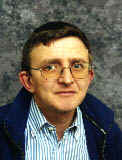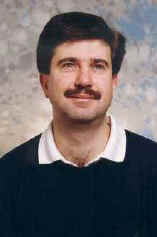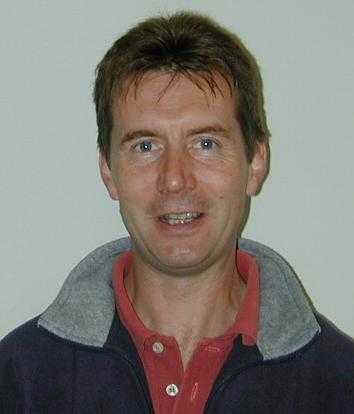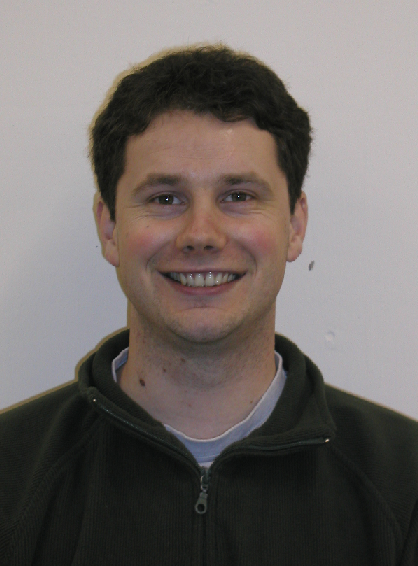FSTM Affiliates
- Professor Adrian Wilson, Department of Physics
- Dr Mike Chappell, School of Engineering
- Professor Chris Dowson, Department of Biological Sciences
- Dr Neil Evans, School of Engineering
 Professor Adrian J Wilson
Professor Adrian J Wilson
Professor of Medical Physics
Department of Physics
Director of Clinical Physics and Bioengineering, University Hospitals Coventry and Warwickshire NHS Trust.
Research interests are centred around measurement and modelling of anatomical structures and physiological processes at all levels from the cellular to whole organ systems. Recent work includes research into a mechanical analogy of the human upper limb, the lung in acute respiratory disease, the treatment of acute respiratory disease and non-invasive methods for determining the cellular structure of tissue. Techniques for determining the cellular structure of tissue include tissue impedance spectroscopy and, more recently, NMR spectroscopy.
Department of Physics,
The University of Warwick
Coventry
CV4 7AL
Tel: 024 76 573868; Fax: 024 76 692016
email: adrian.wilson@warwick.ac.uk
and
Dept. of Clinical Physics & Bioengineering,
Walsgrave Hospital,
Coventry
CV2 2DX
Tel: 024 76 538832; Fax: 024 76 538998
 Dr Mike Chappell
Dr Mike Chappell
Senior Lecturer
School of Engineering
Research expertise lies mainly in the modelling and analysis of biomedical, pharmacokinetic and biological processes. Much of the emphasis of this work has been on compartmental modelling and the application of techniques in system dynamics, non- linear systems, control theory and system identification. He has particular expertise in structural identifiability analysis, that is determining whether the parameters of a postulated model can be estimated if perfect data are available. Such analysis is an important prerequisite for system identification, parameter estimation and experiment design. Over recent years his research has centred on techniques for analysing the structural identifiability of non-linear systems and computer algebra/symbolic computation packages have proved invaluable tools in this context. He also has an interest in the robust simulation of highly stiff systems.
His research has been performed in close collaboration with academic, industrial and hospital-based research groups and funding has been received from a variety of research councils including the EPSRC, the BBSRC and the MRC. He was one of the recipients of the 2001 Snell Premium from the Institute of Electrical Engineers for a paper on wavelet analysis of heart rate variability and its application in the detection of sleep apnoea.
School of Engineering
The University of Warwick
Coventry
CV4 7AL
Tel: 02476 524309
email: mjc@eng.warwick.ac.uk
 Professor Chris Dowson
Professor Chris Dowson
Infectious Disease Research Group
Department of Biological Sciences
The Infectious Disease Research Group is located within a first class research department (grade 5), with extensive facilities for molecular techniques.
The principal objectives of the group are to characterise the molecular genetic attributes which are responsible for the pathogenic properties and antibiotic resistance of a diverse range of organisms, understand the evolution of them and open up novel therapeutic strategies.
Antibiotic resistance, bacterial pathogenicity and population genetics are our three major (often interlocking) areas of research into a range of human and animal pathogens. Understanding the molecular basis for the evolution of antibiotic resistance will help to predict how novel targets will respond to the selective pressures imposed by new chemotherapeutic agents or vaccination. Understanding regulation of the resistant phenotype, due to the acquisition of resistance determinants or cell physiology, enables a rational approach to effective therapy. The identification of essential in vivo expressed pathogenicity determinants by signature tagged mutagenesis (STM), the examination of tissue specific gene expression using cDNA RDA to probe the transcriptome, or 2-D gel electrophoresis with mass spectrometry to probe the proteome, and genomic subtraction of virulent and non-virulent strains all give insights into the fundamental processes involved in the transition from carriage to invasion - and hopefully will identify novel therapeutic targets in the process. Population genetics underpins our understanding of the spatial and temporal structure of bacterial populations, as well as phylogenetic relationships and rates of evolution. All of these are key issues if we are to understand the epidemiology of resistance or virulence within a population, and all the more if we want to identify stable targets for vaccination or chemotherapy.
Department of Biological Sciences
Gibbet Hill Road
University of Warwick
Coventry CV4 7AL
Tel: 024 76 523534
email: cdowson@bio.warwick.ac.uk
 Dr Neil Evans
Dr Neil Evans
School of Engineering
Dr Neil Evans is a lecturer in Biomedical Systems Engineering in the School of Engineering, and is a member of the Systems Modelling and Simulation Research Group. The primary focus of his research activity is the application of mathematical modelling and control to biomedical and biological systems, particularly biochemical processes and infectious disease dynamics. Current research includes structural identifiability and parameter estimation of biomedical systems and the biology of drug targeting for anti-cancer agents.
School of Engineering
The University of Warwick
Coventry
CV4 7AL
Tel: 02476 522062
email: Neil.Evans@warwick.ac.uk
